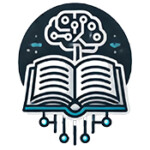 In preparation for brainstorming and outlining the next book in the Cyrus Cooper series, I’ve reread the series and made many notes. With six books so far, that’s a lot of material to cover! Considering how each book builds on the characters and events of the previous releases, and my less-than-stellar memory, there are potentially many ways I could miss plot threads that have been developing for a long time.
In preparation for brainstorming and outlining the next book in the Cyrus Cooper series, I’ve reread the series and made many notes. With six books so far, that’s a lot of material to cover! Considering how each book builds on the characters and events of the previous releases, and my less-than-stellar memory, there are potentially many ways I could miss plot threads that have been developing for a long time.
To address this, I’ve been experimenting with several AI tools designed to index the entirety of the series in a large language model (LLM) with a context entirely specific to my own fictional work. For those familiar with the AI chatbots that have been evolving over the last few years, these tools allow users to ask questions of the AI in a text-based chat window. The technology was initially designed to answer based on language models, or datasets, trained using nearly every available public-domain source of information on the internet.
The tools I was specifically impressed with were Notebook LM from Google and ChatGPT from OpenAI. While both tools make it easy to upload one or more manuscripts for this use case, Notebook LM (free for anyone with an equally free Google account) made it easy to turn that upload into a reusable reference tool. It was basically the core function of the AI tool. For ChatGPT, I needed the Plus version of the tool ($20 per month). ChatGPT required me to create a custom GPT to index my work. While this was easy, it required several steps and, therefore, constituted a learning curve.
Essentially, the newer tools enable authors to create an LLM focused on their book(s). I can ask the chatbot to describe a character, and the AI will refer to its index of my manuscripts and provide an answer, even citing the specific section of the work it used.
Authors with complex worlds, stories, or characters often spend countless hours creating Story Bibles (reference indexes) to achieve the same result manually. In this case, the technology accomplishes the same task for me in a matter of minutes.
As a side note, one of the tools can take the uploaded manuscript and generate a podcast discussing the material. Not only is the verbal back-and-forth conversation entirely generated by the AI, but so are the voices.
Spoiler Alert! Some of the conversations touch on reveals that take place throughout the series. Want to hear an example?
In short, while there is much controversy about AI tools and their impact on creative content, I’m excited to say that it’s not all bad news, doom, and gloom. Some of these tools make creative work easier or more efficient. This new ability to easily reference content buried in over a thousand total pages alleviates my anxiety going into book seven of the series because I no longer need to stress or struggle to find clarity in my material.

